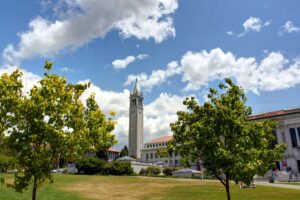
Berkeley associate professor of environmental science, policy and management Elizabeth M. Hoover, recently made a statement apologizing for claiming Native ancestry. In a personal essay published on her website, she apologized for incorrectly identifying as Native American her whole life due to incomplete information. She also apologized for any harm she may have caused while identifying as Native. In researching her Native background, she found that her family stories and history were completely unsupported by official records. While Professor Hoover may not have set out to take advantage of programs that cater to Native communities, instances where people have intentionally deceived the public go largely unpunished. It is a failure on the part of settler institutions to a group that has already suffered enough at the hands of American institutions.
Hoover believes that acknowledging herself as Native American helped her career thrive as it gave her access to resources intended for students of color. She was able to receive academic fellowships, opportunities and material benefits that she may not have received if she did not identify herself as a Native scholar. Additionally, much of Hoover’s research focuses on Indigenous communities.
Hoover is not the only scholar who has incorrectly identified their race and ethnic backgrounds. A Wisconsin artist and activist, Kay LeClaire, was accused of faking various Native American identities. In 2020, Jessica Krug admitted to pretending to be Black and admitted to being white, ultimately resigning her professorship at George Washington University. These actions somehow manage to undermine the credibility of these racial groups despite the fact that the offenses are typically committed by white people.
The theft of Indigenous cultures is often done in an effort to internally justify how they, as white people, take up space that does not belong to them. They try to escape the label of privilege and have a strange desire to be marginalized, like it is a popular trend, to avoid being held accountable for their rhetoric. No one wants to be attached to the history of settler institutions, but pretending the past is a moot point will only further dilute Indigenous culture while denying these groups their rightful place in history and the present day.
This problem does not have a preemptive solution, but it does need to be addressed after the fact. Academic institutions should create appropriate punishments for staff who willfully defraud their students and the public. Trying to prevent this problem by demanding that all people who claim Indigenous ancestry verify themselves and prove themselves to a settler institution is heinous. Even the current Native American registry maintained by the U.S. government carries notes of an undeniable history of eugenics and genocide.
Although some scholars have taken accountability for their actions, others have avoided confrontation as they continue incorrectly identifying themselves as a different race. The continuation of identity appropriation can affect many ethnic groups, strip their identity away from them and dilute authentic culture. The living effects of colonialism and white supremacy must be addressed in every corner of American society, especially within the institutions that serve to educate.







